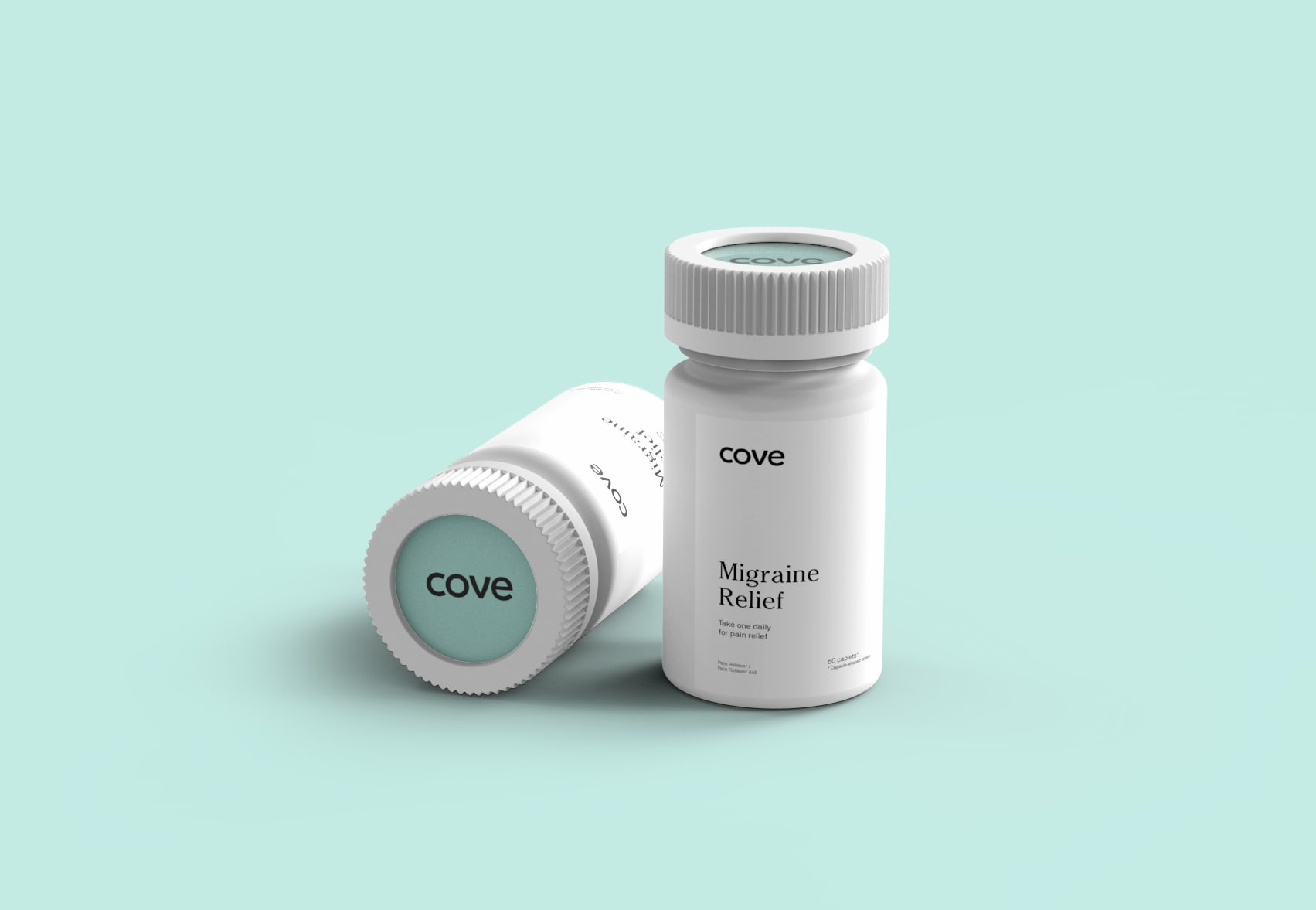“Is my birth control causing migraine attacks?”
If you’re like many folks who suffer from migraine headaches, you may have asked yourself this question.
For Alyssa, age 25, who’s tried multiple forms of birth control pills and the Skyla® IUD, the answer was yes. “Birth control worsens my migraine. It increases the number of migraines and also the duration and intensity,” she said. “Frequently, I would only find relief by heading to the ER.”
When she’s not taking birth control, she finds that she has fewer migraine headaches—and when she does get them, they’re much easier to control.
But Kate, age 31, has had the opposite experience. She’s also tried many birth control options—the Depo-Provera® injection, the NEXPLANON® implant, the Mirena® IUD, and a variety of pills—and found that while strong hormonal birth control increased the frequency of her migraine attacks, going off completely made matters even worse.
“Being off birth control (the few times I have) seemed to have made my migraines more intense and painful,” she said. Today, she takes a combination pill. She doesn’t love it (“I have longer periods, more often,” she reported), but she has fewer migraine headaches than she did with other forms of birth control, so she plans to stay on it for now.
And for Ashton, age 22, who takes the Kariva® combination pill, the experience of migraine on birth control falls somewhere in between. “I used to get headaches sporadically throughout the month,” she said. Since being on the pill, she added, “I do not feel as if my headaches have improved pain-wise, but I find that they come around the same time now.” For many migraine sufferers like her, that tradeoff is worthwhile.
As these experiences illustrate, there’s a clear relationship between migraine and birth control—but what exactly is it? And, more importantly, which birth control option might be right for you?
Like all things migraine-related, the answer is complicated. We sat down with Dr. Sara Crystal, migraine expert and Cove Medical Director, to learn more.
The Birth Control and Headache Connection
These wildly different reactions aren’t a surprise to Dr. Crystal, who knows from client experience that there’s a huge variation in how people with migraine respond to birth control. “For some, their headaches start when they take birth control…and even once they stop, it seems to have triggered something that they can't shake. Whereas for others, it's the best thing ever,” she said.
Why the dramatic variation? In short, people respond to hormones—both naturally occurring ones and those introduced into the body with medication—very differently.
“Right before [your period] starts, there's a precipitous drop in estrogen, and that triggers migraine for a lot of people,” said Dr. Crystal. This particular condition—headaches that start anywhere from two days before to three days into your monthly period—is defined as menstrual migraine.
Many people who have menstrual migraine find some relief having their periods less often—by using an extended cycle pill or skipping the placebo pills in a four-week pill pack, for example. They also tend to experience fewer migraine attacks during pregnancy. That was certainly true for Alyssa: “The only time I have experienced 100% migraine relief (besides being treated through Cove) was pregnancy and breastfeeding,” she shared.
But others, especially those who also frequently experience migraine headaches outside of their monthly period, react differently—and not always positively—to the hormones introduced by birth control.
While studies have been done to dig into the experience of headache on birth control, none are conclusive enough for doctors to truly understand the relationship—or exactly what will work for their patients. “As the quality of available data is poor, further research is needed on this topic to improve the knowledge about the use of estrogens and progestogens in women with migraine,” stated a 2018 article in The Journal of Headache and Pain by a group of leading European headache doctors. In other words: We don’t have many science-backed answers.
“That's why we can't really advise a particular person, ‘Oh you are going to do well with this form,’” said Dr. Crystal. “It really often is a matter of trial and error.”
Birth Control for Migraine: A Process of Trial and Error
Enna, age 35, has been on the path of trial and error for years—Depo-Provera®, Yasmin®, Ortho Tri-Cyclen, Loestrin®, and Hailey Fe® are among the birth control methods she’s tried. Each time she starts a new medication, she sees a reduction in migraine attacks, but over time, her headaches get more frequent and painful. But changing brands from time to time has helped.
Crucially, the trial and error process also revealed what doesn’t work for her: long-term options like the Depo-Provera® injection. “It resulted in having a period for three months straight, so that in congruence with migraines...whoa, bad news,” she said.
Ashton learned through trial and error that switching from a generic to a name brand affected her migraine. “One brand made my headaches much worse than others,” she shared.
It sounds strange, especially for brands that claim to have the same type and percentage of ingredients. But different reactions can happen, said Dr. Crystal, because there’s a certain amount of ingredient variance allowed for a generic medication—and that small difference might be enough to trigger a migraine-inducing hormonal reaction (or not). Same goes for other medications: She notes that her patients who have tried other headache treatments have reported that the generic versions aren’t as effective as the brand names.
But again, you won’t know what works for you—and doesn’t—until you try.
If you think your migraine is triggered by your period or your birth control method, it’s worth having a conversation with your doctor. Start keeping a monthly diary tracking both your cycle and your migraine symptoms that you can share it during your appointment. “The very first thing I’ll ask people is to keep a diary,” said Dr. Crystal. “Looking back on the last few months, I want to know: When did your period start? When did it end? How long are your typical cycles? Tell me all your migraine days, and I try to see what the relationship is.”
During the appointment, she also suggests asking your doctor questions like: “What role are hormones playing in my attacks?” “How might changing birth control formats impact my migraine?” “What are my options to improve control over my migraine headaches?” “Which options are safest for me?”
From there, your doctor can recommend a treatment plan. Dr. Crystal recommends giving any birth control option a trial period of at least three months so that your body has time to adjust to the hormone changes. That said, if your symptoms start to get much worse, or you start experiencing aura with your headaches, contact your doctor ASAP—you may be advised to stop the trial period sooner.
And speaking of, if you tend to get auras with your headaches, you’ll definitely want to let your doctor know. People who experience migraine with aura are at a higher risk of stroke, according to the American Headache Society, and taking estrogen has also been linked to a higher risk of stroke. For that reason, Dr. Crystal noted, “In general, we do not recommend estrogen-containing birth control for people that have migraine with aura,” she said. “For them, we recommend progesterone-only methods.” Progesterone-only birth control options include the mini-pill, IUDs like Skyla® and Mirena®, and the NEXPLANON® implant.
The Last Word on Birth Control for Headaches
Yes, we know it’s probably a bit frustrating that there’s no clear answer to the question: “Which birth control pill is best for migraine sufferers?” But the good news is there might be one that works for you.
Though you can’t control all the factors that go into the complex relationship between birth control and migraine, you can pay attention to your body, your headache symptoms, and your monthly patterns and work with your doctor to identify a treatment plan that addresses both your birth control needs and your headaches.
Want expert help figuring out which birth control works best for you? Nurx’s experienced medical team can help you understand your options, prescribe the best fit for you, and deliver it to your door. Get started today.
There’s no silver bullet when it comes to menstrual migraine attacks, but there are most certainly options—and hope. As Kate put it: “It took a while to get to the point of stability with the migraines, but I do feel it is better.”
You can also learn more about menstrual migraine by watching this webinar featuring Dr. Crystal.
Disclaimer
The information provided in this article is not a substitute for professional medical advice, diagnosis, or treatment. You should not rely upon the content provided in this article for specific medical advice. If you have any questions or concerns, please talk to your doctor.
Photo by Allie Lehman via Death to Stock
The information provided in this article is not a substitute for professional medical advice, diagnosis, or treatment. You should not rely upon the content provided in this article for specific medical advice. If you have any questions or concerns, please talk to your doctor.
Photo by Allie Lehman via Death to Stock



